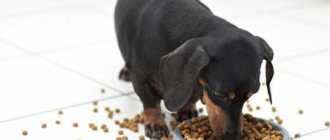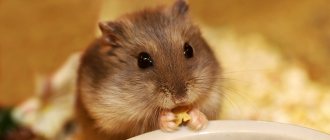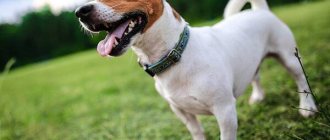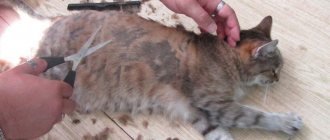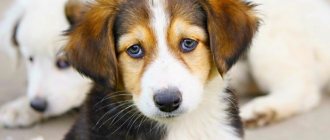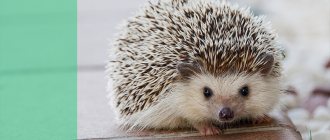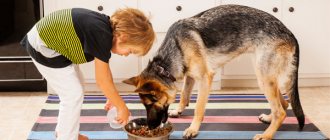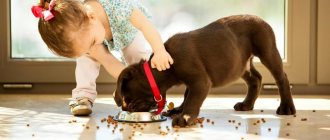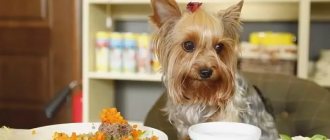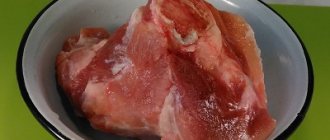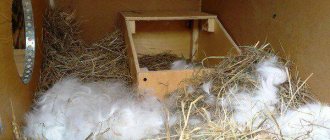Many people want to have a beautiful, fluffy British pet at home, but not everyone knows how to feed a pet properly. Proper nutrition is the key to the health and beauty of any cat, especially the British breed. After all, the condition of the coat, thickness, density and color largely depends on high-quality food.
To ensure that your pet does not have digestive problems, does not lose hair, and feels good, it is simply necessary to provide a balanced diet that contains all the substances necessary for the body.
The cat's diet must be properly selected.
Feeding an adult British cat
The frequency of feeding a British cat depends on the age of the cat. Babies need to be fed at least 6 times a day. At the same time, there is no need to remove food from the bowl. A small kitten should always have access to food to replenish the calories spent in active games and running around. For kittens older than 6 months, the eating schedule is more strict.
They should eat 2 times a day - morning and evening. After eating, the bowl should be hidden or any leftover food should be removed from it. It is important that the cat always has access to clean, fresh water. Especially if the diet is based on dry food.
There are several basic rules for feeding the British breed:
- The animal should be fed only with fresh and high-quality products.
- The food temperature should be the same as the room temperature.
- It is better to grind porridge and vegetables in a meat grinder and mix with meat.
- There should always be clean water next to your food bowl.
- The animal must be fed at the same time.
If the animal eats meat passed through a meat grinder, small balls should be made from the minced meat. After each feeding, the bowl must be washed to prevent bacteria and germs from growing in it. You can't feed Britons hot or cold food.
The animal should be given the opportunity to rest after eating. It is best not to provoke him into playing, but to let him take a nap.
Raw meat and fish on the British menu
All felines are predators. In the wild, animals of this family eat raw, fresh meat, so their diet should not be limited to processed foods, but they should choose wisely.
British cats will not refuse fresh meat.
For Brits, it's worth choosing low-fat varieties. Chicken, rabbit, beef are perfect. Fatty meats, such as lamb or pork, can lead to obesity in your pet and a disruption in its metabolism.
Fresh meat must be frozen for a day before offering it to your cat. This measure will protect against infection by parasites. After defrosting, the meat should be minced, passed through a meat grinder. For children, this operation should be performed twice.
Before giving the meat, it is recommended to pour boiling water over it. This will make it easier for the cat to eat it. Fresh meat should be in the diet every day. For variety, you can use meat by-products.
Ready food
If the owner has chosen dry food as the main food for his pet, he should know a few tips. First of all, it is better to give your preference to premium food. Preference should be given to Premium class feed. The main thing is that the four-legged friend likes it. It is better not to exchange the selected food for other brands. The furry body gets used to one diet, and replacing food can lead to a number of digestive problems. If a cat eats dry food, it must have constant access to clean, fresh water.
How many times a day should you feed
Often nutrition depends on the age of the pet. At a very young age, newborn kittens are fed by their mother. The kitten eats as many times as he wants. From the first month, babies need to be gradually fed, increasing the frequency of complementary feeding. Babies older than a month should eat at least six times a day. For kittens 4-6 months old, it is recommended to have 6 complementary foods per day, while by the sixth month this amount should be reduced to 4. Kittens 6-10 months old should receive food 3-4 times a day. Veterinarians recommend feeding an adult cat 2 times a day. It is better to do this in the morning and evening.
Kittens should be given complementary food as often as possible.
What foods should you feed your Briton at home?
Every pet owner should understand that purebred cats should never be fed food from the common table.
If you decide to feed the animal only natural food, then you need to be patient and understand that you will have to cook separately for the Briton. An incorrect or unbalanced diet can negatively affect the health of a four-legged family member. It is important to understand that not a single British cat can live without meat products . Previously, such food is exposed to low temperatures in the freezer compartment of the refrigerator, where the meat remains for at least two days. Thawed meat does not contain harmful microorganisms or bacteria and is therefore suitable for cats to eat raw. It is advisable to give preference to beef, which is cut together with films and veins. This meat can be given daily. It is better not to include veal in the food of a domestic cat, since it contains virtually no enzymatic substances.
When feeding an animal lamb, pork or game, they must be subjected to heat treatment. Otherwise, helminths or much more serious parasites may appear in the cat’s body. The British also like offal - kidneys, liver, heart or lungs, cut into pieces. Such a meat product cannot be cut very finely so that the pet does not swallow it, practically without chewing. Liver can only be used from beef or chicken, and never from pork.
Boiled fish is beneficial for the health of a British cat. Eating raw fish is undesirable due to the fact that it destroys B vitamins in the body. It is advisable to use marine varieties of fish. But it is impossible for fish to take up a large part of the animal’s food. A castrated animal can be given fish no more than once a month. Chicken meat must first be boiled and bones removed from it, if any. It is better to give it together with broth no more than 3-5 times a week.
The British food can consist of chicken and quail yolks , both boiled and raw. You can mix egg yolk with dairy products and give it to your pet 2-3 times a week. Whole eggs can be cooked like an omelet without adding spices or salt and can also be given to a British cat. Separately, the animal can be fed with fermented milk products. However, veterinarians do not recommend giving milk in its pure form.
Nutrition of British kittens
The nutrition of small kittens must be approached especially carefully. The growth and development of an animal depends on proper nutrition. Kittens should not be given large pieces. They might just choke on them. It is better to grind all food through a meat grinder or blender.
If the kitten eats dry food, pre-soak it with water. Babies should be fed before the family sits down to the table. This will prevent your pet from developing the habit of begging. The table shows the norms of dry food in grams for British kittens:
Table of norms of dry food for kittens up to one year old.
A small kitten aged 1-3 months is fed at least 6 times a day. Some veterinarians recommend feeding 8 times a day. If the diet consists of natural food, the daily intake should be at least 150 grams.
A British baby should eat 4-5 times a day for 4-6 months. The serving size should be increased to 240 grams. From 6 to 10 months, the frequency of feeding should be reduced to 3-4 times a day, the daily norm should be 280 g.
After 10 months, the cat can be fed 2 times a day, and the norm increases to 300 grams. If the animal has a diet of dry food, follow the instructions.
Artificial feeding of British newborns
For feeding very young kittens, there are special formulations that can be purchased at veterinary pharmacies. If it is impossible to use such drugs for a number of reasons, you can prepare similar mixtures at home. British infant formula can be prepared from:
- 250 grams of cream with a fat content of 10% should be diluted with warm water in a ratio of 1 to 2.
- Goat milk is mixed with egg white (4 to 1). The resulting mass must be whipped until smooth.
- Dilute condensed milk without sugar with water in a ratio of 5:1. Add a teaspoon of bone meal to this mixture.
In order not to harm the kitten, you need to feed small kittens strictly in accordance with the recommendations of veterinarians. Experts have developed a number of recommendations:
- The mixture must be freshly prepared. You can store it in the refrigerator, but no more than 6 hours.
- It is necessary to monitor the temperature. It should be 36-37 degrees.
Before feeding your baby, it is recommended to massage the tummy. Such measures improve digestion and add a sense of comfort to the kitten.
Features of caring for a newborn kitten in the first months
Caring for a newborn British baby is a labor-intensive and complex process. Mom gives her furry babies not only food, but also care, protection, and affection. If a kitten has lost its mother, the owner must take over her functions. Otherwise, the baby may simply die.
The main thing is to take care of the kitten’s physical comfort. Hypothermia must not be allowed. It is better to use pillows, blankets, fluffy soft towels. You need to make a house for the kittens. A medium sized box is perfect.
It is better to place it in a quiet, warm place. Before you start feeding, be sure to wash your hands. The immune system at this age is not yet strong, and the animal can catch an infection. If there are several kittens, it is better to keep them together. If any of them develop symptoms of illness, it is better to quarantine him.
Material on the topic: everything about the care and maintenance of British breed cats.
How to understand that a kitten cannot tolerate a particular product
You can understand intolerance to a particular product by the cat’s behavior. The animal stops eating it and ignores such nutrition. Your cat may also show signs of allergies. This may include redness, itching and other symptoms. The cat may begin to itch, hair fall out, and more. If such symptoms appear, you need to eliminate such foods from your diet as soon as possible.
Prohibited Products
Including certain foods in the diet of British Shorthair cats can have serious consequences.
- Milk can only be given to kittens up to six months old. This is due to the fact that in childhood a large amount of the enzyme lactase is secreted. This compound is necessary for the digestion of milk, namely, for the destruction of glycosidic bonds of disaccharides. As the pet grows and develops, the production of this enzyme gradually ceases. This situation leads to the fact that the pet cannot completely digest the milk. Consumption of the product as an adult can affect the condition of the digestive system. The clinical picture is usually represented by stool disturbances, general malaise and vomiting.
- Pork is the most dangerous meat in terms of helminthiasis. Most parasites are localized in the internal organs and muscles of cattle. Moreover, pathogens can be in different states - both at the larval and adult stages. As a result of the fact that pigs often receive uncleaned feed, helminths can enter their body. Raw meat containing the pathogen infects the cat. The further clinical picture depends on the type of parasite. But in most cases, helminthic infestation without treatment leads to severe depletion of the body and death of the animal. In the early stages of the disease, complete recovery is possible in 95-100% of cases. Pork is also dangerous in terms of fat content. Excessive intake of lipids and cholesterol can provoke serious diseases of the cardiovascular system in the animal in the future. Therefore, preference is given to dietary meat varieties.
- Food from the owner's table is strictly prohibited for the pet. Fried, spicy, highly salted, smoked foods can lead to poisoning of the body, the development of gastritis and peptic ulcers if the animal is regularly fed incorrectly. The cat is a carnivorous predator, so food should be close to natural nutrition in nature.
- Plants of the legume family create unfavorable conditions in the intestinal lumen - fermentation occurs during digestion. The pet experiences discomfort in the abdomen due to increased formation of gases.
- Chicken and fish bones are dangerous for cats, as there is a risk of them getting into the respiratory tract. In addition, trauma to the soft tissues of the oral cavity is possible, followed by suppuration in the area of damage.
- Dietary supplements, vitamins, and medications intended for humans are strictly prohibited from being given to cats. Despite the fact that usual medications are used in veterinary practice, if a pet becomes ill, they should be purchased through veterinary pharmacies. This is due to the fact that the products have special dosages and dilutions intended for use by animals.
1111
Nutritional features of elderly and sick British cats
Adults and elderly individuals require special care and nutrition. They should receive a balanced diet, essential minerals and vitamins. Food for such pets should contain little fat and more protein and carbohydrates. Britons' tastes can change as they age. They become capricious and picky. They often refuse their usual food.
This can happen due to the presence of chronic and age-related diseases. An elderly body absorbs vitamins, micro- and macroelements worse. This is due to deterioration of absorption of the stomach and intestines. In this case, it is necessary to include additional vitamin and mineral supplements in the diet. To slow down the aging process of the body, the animal should receive:
- vitamins B, E, C;
- beta-carotene;
- glucosides.
An older animal should be seen by a veterinarian and its health status checked regularly. The specialist will adjust nutrition in the right direction depending on individual problems.
British diet
While Britons are small, their diet differs from that of an adult animal.
It is important to feed your British kitten correctly from the very beginning so that the baby does not have problems with the gastrointestinal tract. So what foods should you include in your pet's menu?
Nutrition at one month of age
As a rule, at the age of one month, British kittens are still fed breast milk. But sometimes it happens that the baby is torn from his mother at such an early age, then he has to be fed formula.
In order for the body to restructure itself, it is best to combine food with food and formula in the first days of the transition. It is better to ask the breeder what kind of mixtures to feed, since it is advisable to give the baby the same foods throughout the entire transition period, so as not to subject the British dog’s delicate stomach to additional stress.
shutterstock
A smooth transition to solid food is carried out in several stages:
- at the age of 1 month you need to feed your baby a little dairy products, but raw cow's milk can cause stomach problems, so it is better to use baby food mixtures or baby milk porridges;
- It is best to start feeding your British cat natural meat with ground boiled minced beef or even more tender veal;
- gradually add semolina porridge or oatmeal or buckwheat porridge with milk to your British baby’s menu;
- It is better not to give fermented milk products to a kitten under 7 weeks of age;
- at the end of the transition, you can include cottage cheese in the diet, you can feed more yogurt;
- It wouldn’t hurt to feed your pet boiled liver (beef or poultry);
Month-old kittens eat often, but not much. One serving should be 20-30 grams of food, and in just one day you should get up to 100 grams of food. The most important thing is to feed them regularly.
British menu at two months
At the age of two months, kittens finally switch to regular cat food. In addition, they are at an age when they can already walk perfectly and begin to explore the vast world around them.
It is very important to eat right during this period. Your pet should get the energy reserve for active movement and rapid growth from a complete healthy diet.
The menu should include the following products:
- dairy and fermented milk products: porridge with milk, cottage cheese, yogurt;
- boiled meat (beef, veal, chicken; rabbit);
- canned cat food (special baby food);
- you can feed the kitten egg yolk (only the yolk, the white can be harmful);
- baby food and baby milk porridges.
It is important that the kitten always has a clean food bowl. You need to wash it after every feeding.
Also, there should always be clean and fresh water nearby (it needs to be changed at least twice a day). You must feed the kitten, and he will drink on his own.
shutterstock
What to feed a British baby at three months?
The kitten grows and its diet changes and becomes more varied. The owner should worry about adding more variety of food products to the pet's menu.
The diet of a three-month-old British kitten should include:
- fish products: this should be fillet, thoroughly cleaned of bones (it is better to take sea fish, it has much less bones);
- You can add dry food soaked in water or milk to your baby’s menu (at this age - no more than once a day);
- although cats are predators, at the age of three months their diet should be fed with vegetable products, which are served boiled along with chicken, turkey or beef meat;
- Infant formula and porridge can be eliminated by replacing them with natural fermented milk products (kefir or yogurt) during the transition period, but you should not feed your baby with store-bought products.
At the age of three months, the kitten's meals should be just as frequent - at least 4 times a day, and the portion size can be increased.
Menu for four months
The baby is growing and looks less like a tiny ball of wool. His body has already adapted to adult food. Your pet may eat less often, but the portions should be larger.
At this stage of growth, dry food can be included in your pet’s menu in a volume of at least a quarter of the total. It is better to use specialized varieties of dry food that contain an optimal balance of beneficial nutrients and microelements.
The young body of a cat at this age needs proper, healthy, balanced nutrition more than ever.
Features of the manufacturer's cat nutrition
The diet of a British stud cat is practically no different from the diet of an ordinary cat. For better health, you can introduce additional supplements of vitamins and elements. Some professional breeders choose food with a high protein content for such individuals.
What to feed a cat after castration
After the operation itself, the animal must be switched to a new diet. This is necessary to reduce the cat's stress. The time and amount of food remains the same. This condition is necessary for stable digestion. Often neutered individuals begin to gain weight.
To do this, you need to gradually reduce the amount of food. If the animal receives dry food, its weight should be 30-40 grams. For wet food – 50 grams.
You need to monitor your cat's weight and weigh the animal regularly. You can calculate the exact amount of feed from special tables developed by specialists in breeding and caring for British dogs.
It is recommended to play with neutered animals more often. The animal must have physical activity. This will prevent obesity.
To determine the degree of obesity, you can stroke the animal on the back and hips. In this case, all bones should be palpable; if this does not happen, then the cat has excess weight that needs to be dealt with.
Nutrition for spayed and neutered British dogs
Food for British cats after castration or sterilization differs in composition from the diet of a healthy cat. After surgery, not only the animal’s hormonal levels are reconstructed, but also the cat’s entire body and its main systems.
If a sterilized cat or neutered cat eats ready-made food, you need to buy special food for neutered cats, which is available from all popular manufacturers.
With a natural diet, you should adhere to a diet in which the content of calcium, magnesium and phosphorus is minimal, since there is a possibility of developing urolithiasis, especially in cats.
It is necessary to exclude cheese and fish from the diet, and feed mainly dairy products and meat. For sterilized cats, it is very useful to give kefir and low-fat cottage cheese.
Nutritional features of a pregnant cat
A pregnant cat needs special and enhanced nutrition. The diet should include veal, chicken, and beef. Sometimes you can feed fish, as long as there are no bones in it. It is recommended to give the “future mother” dairy products - kefir, cottage cheese, sour cream and others. There must be vegetables. This is necessary to ensure that the body receives the necessary vitamins.
Bone meal can be used as an additional additive. Sometimes pregnant cats may have problems with bowel movements. To eliminate this problem, broths containing meat and warm milk are introduced. Sausage, sweets, and foods with seasonings should be completely excluded. Such foods can cause diseases such as kidney stones and heart failure.
A nursing cat needs an enhanced diet.
What to feed a cat after giving birth
During the first few days, the cat may completely refuse to eat. There's nothing wrong with that. The main thing is that the cat drinks water during this period. Mom needs to give food more often - 5-6 times a day. Veterinarians advise switching the cat to liquid food in the first weeks.
New products are gradually being introduced - meat, vegetables. If the cat is on a ready-made diet, many manufacturers have specially formulated foods in their product line.
Mr. Cat recommends: When to introduce complementary foods
Veterinarians advise introducing complementary foods starting at three weeks. At this time, the kitten can gradually accept new food and wean itself off mother's milk. To reduce the body's stress in response to the arrival of an unknown product, complementary foods are introduced gradually.
Start with small amounts and watch the animal's reaction. If the kitten refuses to eat, you should not continue to force feed it.
Varieties of food
Food for the British is divided depending on cost into the following classes:
- economy;
- premium;
- extra-premium;
- special feed.
These feeds differ in their composition and the quality of the products used for their production.
Interesting material about British cats: what is their character and what they are like.
Economy class food
The British are quite picky eaters.
Food in this category is known to everyone thanks to active advertising. They do not contain even half of what is required for a complete, balanced diet for an animal.
They are produced from the lowest quality raw materials. Their main ingredient is cereals. Offal is used as meat.
Such foods are harmful to the health of British cats due to the lack of all necessary vitamins, proteins, and minerals.
Premium class for cats
They contain a higher percentage of meat, mainly chicken. Most of the composition is also cereals, corn or rice. These foods contain more vitamins and other essential elements.
Extra premium food
This category is rarely advertised. It is known to professionals and people who are picky about the quality of their pet’s food. Such food is sold in specialized stores. The percentage of meat in such brands is much higher than in regular ones. There is a balance of proper nutrition here.
Holistic food
Holistic cat food is sold in veterinary stores. It contains real high-quality meat, as well as special additives. Holistic foods are considered the best among ready-made diets. They do not use plant sources of protein. For better preservation, no artificial preservatives are used. Interesting nuances of feeding cats can be found in the video below.
How to exclude urolithiasis
The cause of urolithiasis (in both humans and animals) is stone-like formations in the urinary tract and kidneys. After castration, the animal's urinary canal (urethra) narrows, which contributes to its obstruction. This means that if there are stones, they will not be able to leave the body naturally.
Therefore, the diet of castrated British cats should contain a minimum content of microelements, which can contribute to the appearance of kidney stones. These are phosphorus, calcium and magnesium.
How and what to feed a neutered cat correctly
What type of nutrition is acceptable for such a “family member”: dry food, canned food, or natural food? There is no clear answer to this question. If you give preference to dry cat food, then the main rule is to stick to one brand. Now on the pet food market there is a huge selection of their manufacturers and various selections, including for neutered cats.
True, there is no significant difference between specialized and ordinary food; when purchasing, you just need to pay attention to the presence of components that oxidize urine (they reduce the likelihood of stone formation). It is better to take premium or super premium food.
Another rule when feeding dry food is for the animal to drink a large amount of water (about 3 times more than the food it eats).
If the cat does not like to drink water, you need to give the food soaked or switch to natural food.
In this case you can use:
- poultry meat,
- beef,
- carrot,
- cabbage,
- offal (liver, lung, heart, chicken gizzards),
- porridge.
Baby puree with beef and vegetables is also perfect. Kefir and cottage cheese are also needed
It is important for a cat to eat a varied diet. You should do this: alternate dry food with canned food, and with a natural diet, use dry food as a supplement
Once the brand of food has been finalized, it is not recommended to change it. It is better to use a product from well-known and trusted manufacturers, because... They are constantly improving the composition of their feed by conducting various additional studies.
The use of fish in the diet of castrated cats is strictly prohibited! Phosphorus contained in it in large quantities is very harmful to them.
Strong and healthy teeth
To ensure that your cat’s teeth remain healthy, special substances are added to elite foods to prevent diseases in this area. With natural feeding, they will be replaced by massagers for teeth and gums, which are available in a large assortment in pet pharmacies and pet stores. There you can also purchase a complex of vitamins C, E and B, which is necessary to maintain the vitality of your pet.
The recommendations given are quite general. A veterinarian will provide a full consultation on proper nutrition for a neutered cat, and he will also advise what to do if the cat does not want to eat its usual food.
Additional Health Support Factors
It is important and necessary for a castrated cat not only to eat properly, but also to be more active. Having no sexual instinct, such an animal focuses on food - it begins to eat a lot and often
This diet, combined with a sedentary lifestyle, can lead to obesity in your pet.
To prevent this from happening, you need to feed the cat often, but in small quantities. You definitely need to give him a weekly fasting day. If the cat has nevertheless gained weight, then you should make his diet lower in calories and increase physical activity (in the form of frequent outdoor games). Excessive lethargy of the purr after surgery is a reason to visit a veterinarian, who can advise him on a course of vitamin B 12 and sex hormones.
The recommendations given are quite general. A veterinarian will provide a full consultation on proper nutrition for a neutered cat, and he will also advise what to do if the cat does not want to eat its usual food. A properly balanced diet and a certain amount of physical activity are the key to ensuring that your pet remains healthy, cheerful and active after the castration procedure for the rest of its life.
Rules for choosing food
British breed cats are not too picky about the taste of food, so food should be chosen based on the composition, budget and health of the animal. Specialized lines of food for the British contain important microelements; the ratio of products is selected taking into account the needs of representatives of this breed.
You should not mix different types of food (dry, wet) from different manufacturers. You can alternate them. When buying an unfamiliar brand of food, it is better to take several small packs instead of a large economy pack and see how your pet reacts to the new diet.
Diet and feeding regime of the British
Adult cats of the British breed are fed no more than once a day in the summer heat, and twice a day in all other seasons.
It is very important that the cat is fed according to a schedule. Balanced cat food per kilogram of weight may consist of the following ingredients:
- beef meat – 20 Gy;
- soft cheeses – 10 G;
- cereal – 4 Gy;
- sunflower oil – 0.2 G.
By adhering to proper nutrition, the cat will live a long time without illness, without visiting a veterinarian, delighting its owners with a grateful purr.
Diet depending on age
The development of the digestive system in British kittens occurs gradually, so some types of foods can cause colic, bloating or indigestion.
1-2 month
A 1-2 month old kitten is fed liquid milk porridges, pureed soups with chicken broth, cottage cheese mashed with low-fat sour cream or milk.
3 months
From this period, babies are given meat, in addition to cereals and soups. It is frozen and scraped with a sharp knife or passed through a meat grinder.
6 months and older
Kittens of this age can already be given all of the above products, paying attention to temperature and freshness.
Breed Features
Having studied the characteristics of the breed, you will know in advance what problems you may encounter as the kitten grows up. The British Shorthair cat is one of the most popular breeds all over the world. All British cats are similar to each other: they have a gray color, bright orange pigmentation of the eyes and erect ears. Any “derivatives” of the breed, for example, kittens with drooping ears, tabby or merle coloring, are mixed breeds.
A purebred British Shorthair cat with breeding documents is a potentially healthy animal. Before selling, the breeder is required to examine kittens for genetic diseases. Kittens that have been identified as having health problems are subject to castration, which makes it possible to maintain the health of the breed as a whole.
Hereditary genetic diseases of the breed are not very common, and their occurrence is due to the large population. It is known that British Shorthair cats are prone to food allergies, skin problems of various etiologies and rapid weight gain. The above characteristics of the breed must be taken into account when preparing the diet.
Which diet to choose: the pros and cons of “drying” and “natural”
The owner must decide immediately what to feed British kittens. You cannot mix or constantly change natural feeding and ready-made food. Even single-component holistic products are not recommended to be alternated with conventional products.
The good thing about ready-made food is that you can buy it in small wholesale at a pet store or order it on a specialized website. Also, a jar of kitten food is usually designed for a daily diet, which means you won’t overfeed your cat. And in general, a ready-made diet is always more convenient than preparing food for your cat every day.
But this is where the cost of feed comes into play. If you do not think through the diet in advance and do not purchase with maximum profit, then the nutrition budget for a British kitten can be significant. These breeds can only eat super-premium or holistic food, and they are not cheap.
The natural type of feeding also requires planning and preparation, but you can still combine purchases with your own daily consumption. For example, you can use all the milk suitable for kittens for baking. The kitten eats its portion from the package, and the impressive leftovers will always find use in human recipes.
The same goes for meat - lean turkey fillet can be easily processed into semi-finished products for a kitten; you can cook any excess for yourself. Vegetables, fruits, cereals - all these are products for general use that are not purchased selectively only for the kitten.
The issue of daily cooking can also be solved with natural feeding. There are a lot of recipes for cats that help you create a diet for several days, although you will still spend more time on them than on ready-made food.
One of the disadvantages of natural products is the need for self-dosing, because we must not forget about the daily amount of food and the volume of each serving. Evenness of food intake is very important for a small British kitten.
Also, with a natural diet for a British kitten, it is difficult to maintain the balance of vitamins, which are already collected in ready-made food, taking into account breed and age characteristics. A veterinarian will help you resolve the issue, especially if you keep a diary of your kitten’s food.
British Fold kittens: what to feed at 6-12 months and later?
At the age of 6-12 months, the final formation of the pet’s character begins and puberty begins.
From an educational point of view, this is the most difficult period. In any case, you need to be calm and forgiving; after all, proper upbringing of both children and pets is not nerve-wracking. Last but not least, the degree of hooliganism of the kitten during this period depends on the correctness of its nutrition. If you have a British kitten or kittens, you need to figure out how to feed them during the period of 6-12 months. First of all, upon reaching 6 months, we completely remove milk from the diet - it is no longer needed, in addition, now it has become harder for the kitten to digest it. Otherwise, the list of products remains the same as in the previous period. You also need to gradually increase the proportion of dry food to 40-50% by the age of 12 months, and by the same age transfer your pet to 3 meals a day. Later, after reaching a year, you can gradually introduce him to 2 meals a day and 70% dry food; you should never exceed this figure.
That's all - now you know what to feed your British kitten. Your pet is already big, beautiful and energetic. If you have followed and continue to adhere to the dietary recommendations given in this article, he will live a long, happy life and will never tire of delighting his owner with new tricks every day.

